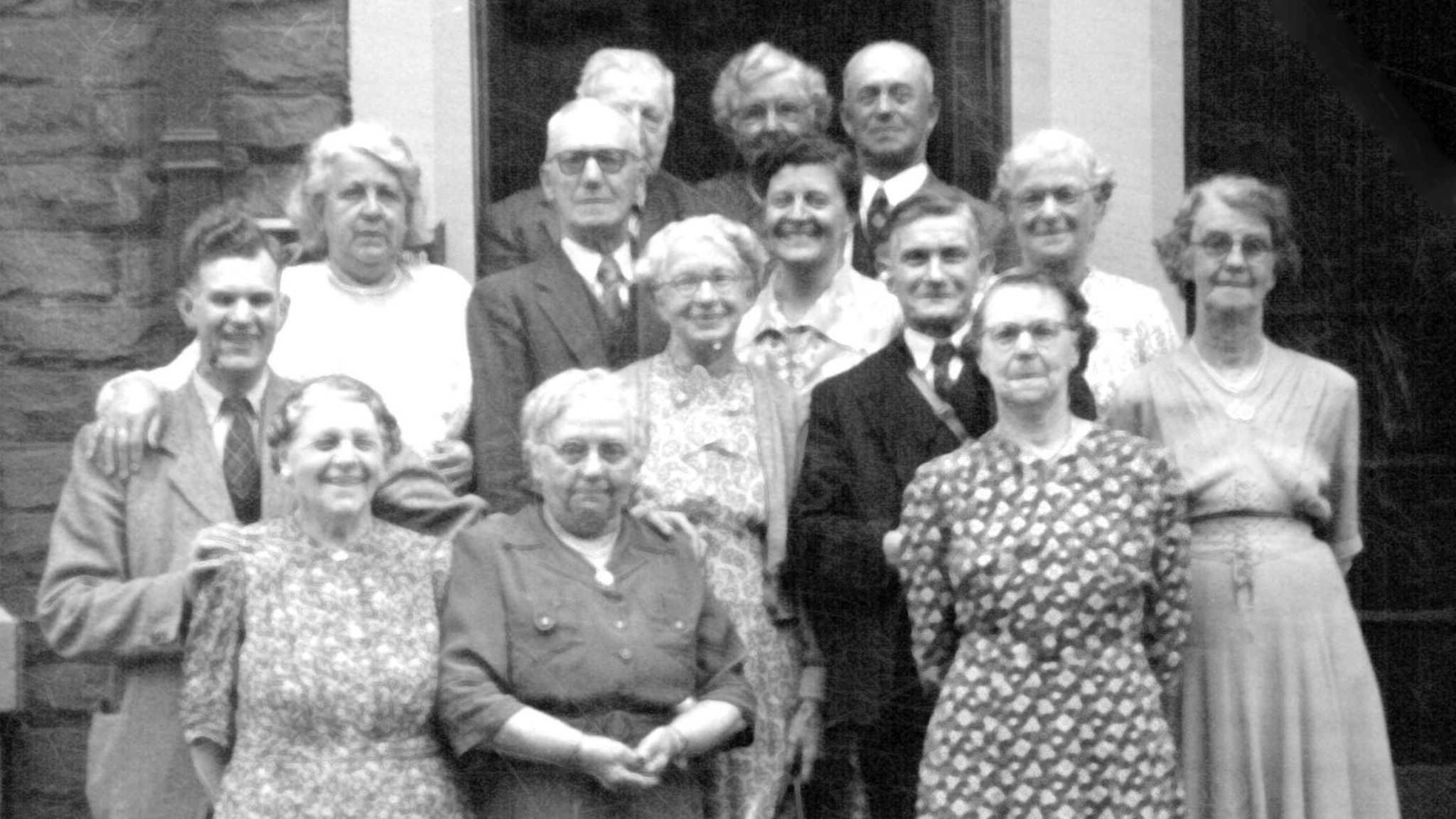No-nonsense landladies who made the seaside special

The landladies were famed for their no-nonsense reputation, gruff manner and strict rules and regulations
- Published
Up until the 1980s, before package holidays meant trips abroad were affordable to the masses, the seaside was a favourite holiday destination for British people.
And many working class families visiting Morecambe for a cheap getaway would choose to spend their stay in a bed and breakfast, where the landladies created a lasting impression.
They were famed for their no-nonsense reputation, gruff manner and strict rules and regulations, but would go out of their way to help their guests.
Now, Historic England is funding a project that will explore the lives of these landladies who have seen thousands of holidaymakers come and go over the years.
Twenty people were interviewed about their reflections on the women over the decades, including ex-landladies themselves, family members and paying guests.
A short film by Historic England brings together three generations of landladies at the Berkeley bed and breakfast in Morecambe to reflect on the town’s past, present, and future.
Current and former Morecambe landladies Robbie Taylor, Colette Neill and Marilyn Blackburn
Colette Neill has been the landlady of the Berkley for 14 years.
"We always go out of our way to try and help people," she said.
"You never know what you're going into in a room. So you could walk into red wine all over the carpet.
"It is hard work, it can be 24/7 because you never shut off."
Robbie Taylor helped her mother Hazel Booth run two guesthouses when she was a child.
She said a lot of guests were working class people hoping for a cheap holiday or workers from the mills who had been advised to visit the promenade to ease their lung problems.
"We had our own accommodation downstairs in the basement. In those days in Morecambe there was always a risk of flooding, so in the winter we slept upstairs," she said.
"We were doing sort of general jobs, serving people tea and things like that.
"Quite often the standard of food they were getting in a bed and breakfast was better than they were eating at home."
Morecambe was a favourite holiday destination for working class families, who would often stay at bed and breakfasts
Marilyn Blackburn ran the Melrose House bed and breakfast. She said she hosted people of all ages and most were well behaved.
"There was one incident where there was a bit of an argument and they set the bedroom on fire," she said.
"They caused an awful lot of damage, throwing things out of the window.
"Other than that, I loved every minute."
David Evans from Morecambe Heritage said the interviews were conducted by young volunteers from the town, making intergenerational learning an important part of the project.
"Heritage, particularly personal memories, connects us all, even across a chasm of six or seven decades.
"It reminds older people of simpler happier days. The young interviewers were all volunteers and gained a real insight into the social history of their hometown."
Listen to the best of BBC Radio Lancashire on Sounds and follow BBC Lancashire on Facebook, external, X, external and Instagram, external. You can also send story ideas to northwest.newsonline@bbc.co.uk, external
Related Topics
More like this story
- Published23 February
- Published23 April
- Published18 March